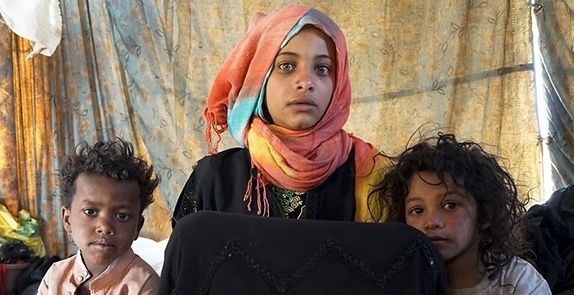IOM provides mental health services and safe spaces in Yemen for displaced children and families

Since March 2015, the conflict in Yemen has affected the lives of millions of families. According to the UN Migration Agency’s (IOM) Displacing Tracking Matrix, as of June 2018 approximately 2.3 million people have been displaced.
The destruction of essential infrastructure has made it difficult for Yemenis to provide for their families and find livelihood opportunities. Statistics have shown that nearly 18 million are food insecure, while 22 million are in need of humanitarian assistance.
The U.N. Children’s Fund (UNICEF) noted that the education sector is on the verge of collapse due to chronic underdevelopment, conflict and political divisions in Yemen. As a result, UNICEF and the Ministry of Education estimate that nearly two million children are not attending school.
To combat this, the IOM has established 31 Child-Friendly Spaces in Yemen to allow children to have a safe place to play. More than 230,000 boys and 170,000 girls have been served in centres located in both Aden and Sana’a.
Anwar Al-Shami from IOM Yemen commented:
“Our teams have learned of several incidents of child suicide, sexual and labour exploitation, family separation and recruitment since the war broke out in Yemen. We are striving to provide a safe place where children and families feel supported."
Since 2016, IOM has provided community-based psychological support to 400,000 children who have been displaced from their homes due to conflict. It also provides mental health and psychological support in 61 health facilities throughout Yemen.
The AIDF Global Summit will return to Washington D.C, in 2019.
If you’d like to stay informed on the latest updates in aid and development, please sign up for the AIDF newsletter.
Photo Credit: Development Aid















